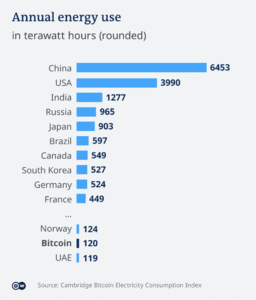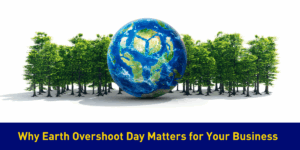As businesses around the world commit to carbon neutrality, it’s essential to explore all available clean energy sources. While wind and solar are popular renewable options, nuclear energy plays a unique and critical role in delivering reliable, emission-free power. Emission-Free Energy Certificates (EFECs) allow businesses to support this consistent energy source, bridging the gap between today’s energy needs and tomorrow’s sustainable future.
In this blog, we’ll explore the role of nuclear energy in achieving carbon neutrality and why EFECs are an effective way to support this vital energy source.
Nuclear Energy: A Consistent, Emission-Free Power Source
Unlike renewable sources that rely on weather conditions, nuclear energy provides a constant supply of clean power. This consistency is crucial for businesses that require round-the-clock energy. Nuclear plants operate continuously, making them a stable, reliable source of emission-free energy that complements renewable sources by maintaining steady power when the sun isn’t shining or the wind isn’t blowing.
How EFECs Help Sustain Nuclear Energy
Emission-Free Energy Certificates (EFECs) represent a measurable amount of emission-free energy from sources like nuclear plants. By purchasing EFECs, businesses directly support the ongoing operation of nuclear facilities, ensuring they remain viable contributors to a cleaner energy grid. EFECs generate revenue for nuclear plants, helping to keep them operational and maintain their role in the carbon-free energy mix.
Advantages of Nuclear in the Clean Energy Landscape
While solar and wind play essential roles in the clean energy transition, nuclear energy provides distinct advantages that make it an indispensable part of the solution:
- 24/7 Reliability: Nuclear energy provides consistent, continuous power, making it a dependable source of clean energy.
- Emission-Free: Nuclear plants do not produce carbon emissions, which helps reduce the total carbon footprint of the energy grid.
- High Energy Output: A single nuclear plant generates a large amount of energy, meeting high demand with fewer resources than some renewable options require.
EFECs: Supporting a Sustainable, Balanced Energy Future
By investing in EFECs, businesses help maintain a balanced energy landscape that includes both renewable sources and reliable emission-free energy like nuclear. This balanced approach supports carbon neutrality by providing clean energy on demand, making it easier for businesses to meet their energy needs while committing to a sustainable future.
Conclusion
Nuclear energy plays an essential role in achieving a carbon-neutral future, offering consistency, high energy output, and zero emissions. With Emission-Free Energy Certificates, businesses can support this reliable power source, offset their carbon emissions, and take meaningful steps toward sustainability. EFECs provide a unique opportunity for companies to make an immediate environmental impact while supporting the clean energy ecosystem.
Interested in learning more about how EFECs can support nuclear energy and help your business reach its carbon neutrality goals? [Explore our EFEC offerings here](Landing Page Link) and start your journey toward a sustainable future.





